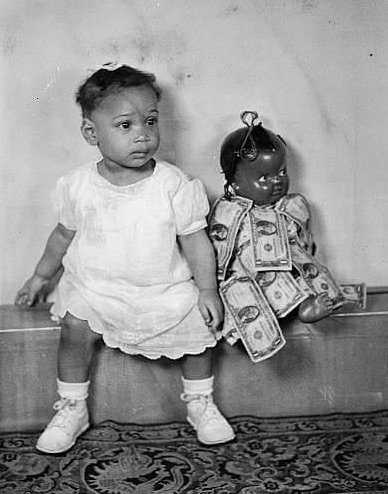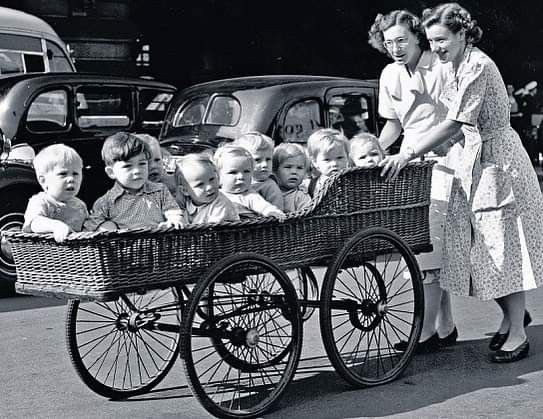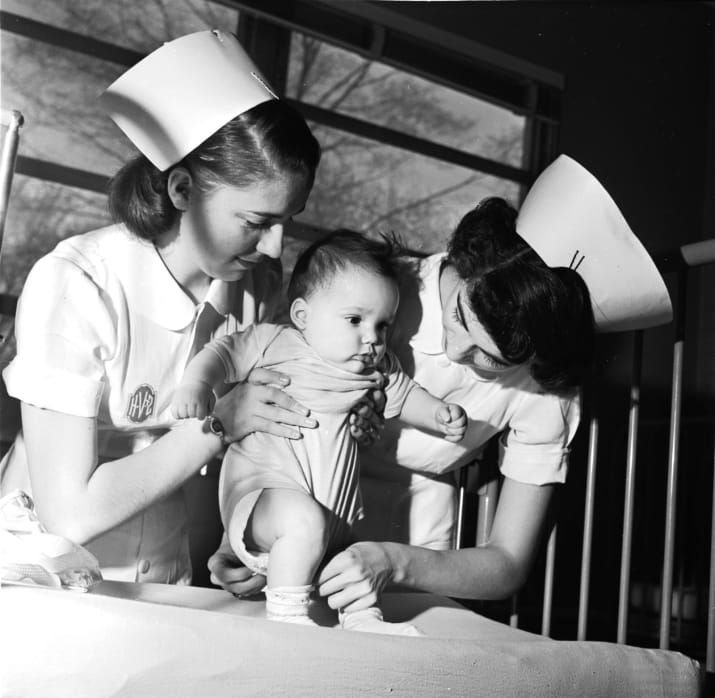Spilling More Than Just Milk
We’ve Got Some Real Shit to Share!
CATEGORIES
TOPICS

Sleep Deprivation Survival Guide: Supplements & Foods for New Parents

🧪 Chemical Pregnancies: The Misunderstood Early Loss That’s More Common Than You Think
You peed on the stick. You saw the faintest whisper of a second line. You blinked. You squinted. You googled. You got excited. Then, within days—maybe even hours—you started bleeding. That line faded. And you were left wondering, "Was I even pregnant?"

Pediatric Chiropractors: What's the Deal?
Pediatric chiropractors—those mysterious spine whisperers who claim to gently adjust your baby into a state of blissful alignment. Are they miracle workers, modern-day snake oil salespeople, or somewhere in between? Let’s crack (pun intended) into the facts.

Tounge Ties + Lip Ties: A Full Rundown
Tongue ties and lip ties—newborn feeding woes, speech quirks, and the occasional family debate at the dinner table. Let’s dive deep into what they are, what to do about them, and why everyone seems to have an opinion.

Tacky or Genius? Rethinking Baby & Toddler Gifting Norms
Be honest—baby showers, birthdays, and kid-related gift-giving have turned us into a society drowning in stuff. Cute, tiny, utterly adorable stuff—but mostly unnecessary clutter that piles up, drains wallets, and forces parents to frantically Google, “how to return a gift without offending anyone?”
Meanwhile, the things that actually help babies, toddlers, and their utterly exhausted parents—college savings, practical supplies, or (gasp!) just straight-up cash—are somehow considered tacky. But why? Why is it perfectly acceptable to gift a monogrammed cashmere newborn onesie (that will last a whole three weeks) but weird to contribute to a college fund?

Baby Bills: How to Milk Your Insurance for All It’s Worth
Ah, pregnancy and new parenthood—where your sleep schedule is a joke, your coffee consumption is concerning, and your tiny human somehow costs more than a luxury vacation. But here’s a little secret: your health insurance might actually help soften the financial blow. Yep, if you know where to look, you could be reimbursed for more than just hospital bills. Let’s break it down and see where you can save.

Pelvic Floor 101
When it comes to pregnancy, childbirth, and even everyday activities like sneezing without fear, the pelvic floor deserves a standing ovation. But unless you’re deep into postpartum recovery or a Pilates class, you might not even know what it is. So, let’s break it down: what is the pelvic floor, where is it hiding, and why should you care? (Spoiler: it matters to everyone—yes, even dudes.)

How To Set Up A Meal Train
A new baby has entered the scene. The parents? They’re surviving on caffeine, adrenaline, and the occasional handful of Goldfish crackers. Cooking is about as likely as them getting eight hours of uninterrupted sleep (spoiler: it’s not happening). Enter the hero of postpartum survival: the meal train.

You Could Develop Linea Nigra
Ah, pregnancy. A magical time filled with glowing skin, luscious hair, and… wait, is that a dark line running down my belly Congratulations—you’ve just met the linea nigra (Latin for “black line”), one of pregnancy’s many surprise guests. Unlike the heartburn and swollen ankles, this one isn’t painful, dangerous, or even remotely problematic. In fact, it’s just your body doing its thing.

Cervical Mucus: Your Body's Natural Fertility Tracker (No Shame Required)
Let’s talk about something that most health classes skipped or glossed over: cervical mucus. Yep, that discharge you’ve probably noticed in your underwear from time to time. Spoiler alert: it’s not gross, weird, or something to be ashamed of. In fact, it’s your body’s very own fertility weather report, giving you real-time updates about where you are in your menstrual cycle.

AI in Parenthood: The Tech-Savvy Support System You Didn’t Know You Needed
Parenthood: the beautiful, chaotic, sleep-deprived adventure filled with equal parts snuggles and existential questions like, “When was the last time I showered?” Between diaper blowouts and nap battles, a new player is stepping onto the scene to help parents manage it all: Artificial Intelligence (AI).

Medical Preparedness for Babies and Children: Because Band-Aids Aren't Enough
Parenthood is a wild ride, complete with sleepless nights, snack negotiations, and an impressive collection of sippy cups. But one thing that often sneaks up on new parents? Medical preparedness. Because when your toddler decides to somersault off the couch or your baby spikes a fever at 2 AM, you don’t want to be Googling “Is this an emergency?” while wearing your least flattering pajamas.

OB-GYN vs. Doula vs. Midwife: The Ultimate Guide to Your Pregnancy Dream Team
Pregnancy—the magical time when your body transforms into a deluxe Airbnb for a tiny human. Along with weird cravings and unsolicited belly rubs, you’ll find yourself navigating a world of birth professionals with titles that sound like they belong in a medieval court: OB-GYNs, doulas, and midwives. Who are these people? Do you need all of them? Some of them? None of them? Let’s break it down.

Can Your Baby Hear You Talking About Them in the Womb? (Spoiler: Yes, and They Have Notes.)
Ah, pregnancy. The magical time when you realize that heartburn is your new personality trait, and you develop the bladder capacity of a walnut. But while you’re busy navigating cravings and unsolicited belly touches, your tiny tenant is doing something pretty incredible—listening.

Understanding the Science Behind Getting Pregnant
My husband and I are actively trying to get pregnant with our second child. It’s been 6 months of loosely tracking my period, using ovulation strips infrequently, and giving it a proper go. When we started this time, I had it in my head that it would take up to a year to conceive. Not sure exactly where I got that amount of time other than hearing from a handful of women around my age (36) that it took them about a year to get pregnant with their second child. So, without any evidence that this would be my situation, I set my expectations to avoid getting upset if it didn’t happen quickly.

Episiotomy 101: What You Need to Know (Without Squirming Too Much)
Ah, childbirth—the beautiful, magical, life-altering process where you bring a tiny human into the world. It’s also when you hear medical terms that sound like they belong in a medieval torture manual. One of those words? Episiotomy. So, what is it? Should you be worried? Let’s break it down with science, stats, and just enough humor to keep it tolerable.

Cortisol & Parenthood: Why You’re Stressed, and What Science Says About It
Parenthood—the glorious adventure that starts with sleepless nights and bottle warmers, then somehow escalates into chasing a sticky toddler who’s sprinting toward traffic while yelling, “I AM A DINOSAUR!” Whether you’re dealing with a newborn’s 3 AM existential crises or a toddler’s meltdown because you dared to pee alone, there’s one thing quietly working overtime in your body: cortisol—the VIP of stress hormones.

Why Hair Loss Peaks 3-4 Months Postpartum: The Science Explained
Having a baby is a life-changing event in many ways—including what happens to your hair. For many new parents, the joy of welcoming a newborn is accompanied by a less joyful phenomenon: significant hair loss. If you’ve noticed more hair in your brush or shower drain a few months postpartum, you’re not alone. Let’s unpack the science behind postpartum hair loss, its timeline, and what you can do about it.

Why Do I Still Look Pregnant?! Your Postpartum Belly
So, you’ve delivered a baby—congratulations! 🎉 You’re officially a superhero. But wait… why does your belly still look like there’s a part two to this pregnancy? Before you panic and start Googling “alien twin syndrome” (spoiler: it’s not a thing), let’s break down the totally normal, slightly mystifying, and completely scientific reasons why your postpartum belly hasn’t packed up and left just yet.

How Age Affects Fertility
For many people, the journey to parenthood begins with understanding how age impacts fertility. While pregnancy is possible from puberty to menopause, the likelihood of conceiving changes significantly over time. Here’s an in-depth look at what the data says about getting pregnant at different ages and why age matters.

